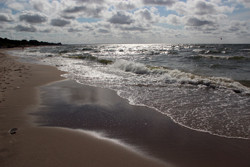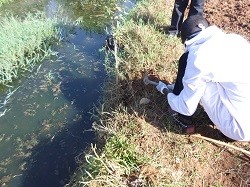Protecting the Baltic from climate change
Attempts to control hypoxia usually centre on reducing the level of inorganic nutrients, especially nitrate and phosphate, entering the marine environment. However, the concentration of dissolved organic nitrogen (DON) often exceeds that of dissolved inorganic nitrogen in both marine and freshwater. The aim of the DON-HYPO project was to determine the role of DON in the metabolic rates of plankton and bacteria in the Baltic Sea. The Baltic is the largest coastal area to suffer from hypoxia due to eutrophication caused by excessive nutrients entering the mostly enclosed sea. Researchers also determined the DON content of a coastal station in the Baltic Sea and analysed DON inputs from different sources. The sources included municipal wastewater treatment effluent, atmospheric deposition and three Swedish rivers representative of different land-use patterns. Results supported the hypothesis that warming of the Baltic Sea through climate change will increase plankton respiration rates faster than plankton primary production. This may lead to a depletion in oxygen levels, further increasing hypoxia in the Baltic Sea. In addition, DON inputs were found to work together with temperature to further increase respiration in response to global warming. It was also shown that nutrient reduction plans should also include the organ fraction of the nutrients, specifically DON, and take into account the synergistic effects of warming. DON-HYPO will help to explain the effects of global warming and eutrophication on dissolved oxygen levels in the near and distant future on biodiversity and ecosystems. The project's results will therefore help to better protect marine ecosystems, conserve biodiversity and set successful management targets for coastal waters. Results will be published in peer-reviewed scientific journals and press releases. The project will inform the public and policymakers about the importance of taking into account the organic fraction of nutrients when developing nutrient reduction plans. The plans will help to reduce eutrophication-driven hypoxia in coastal areas, particularly in the Baltic Sea.







